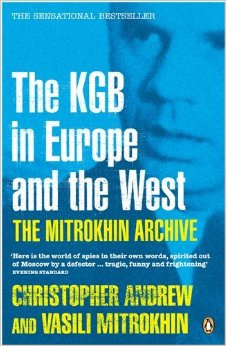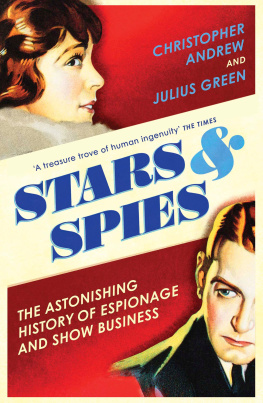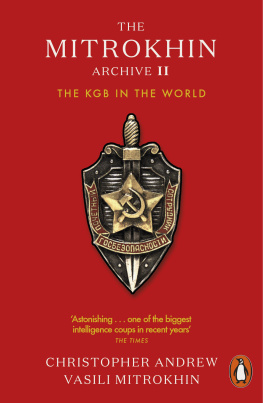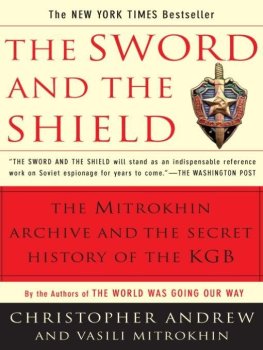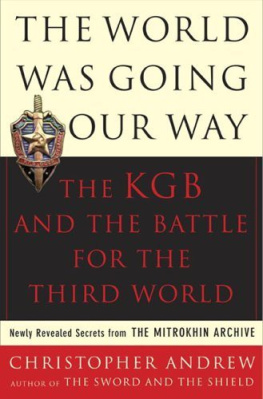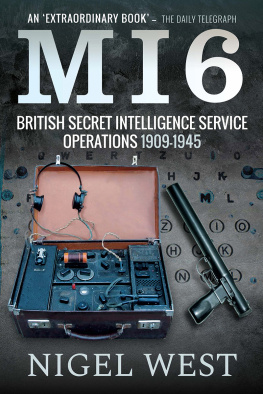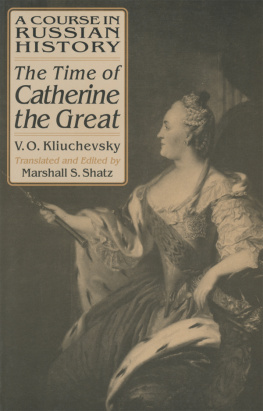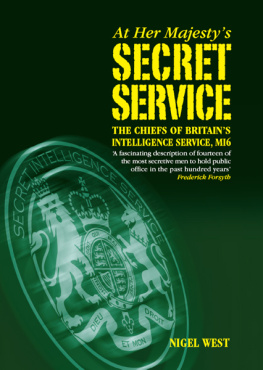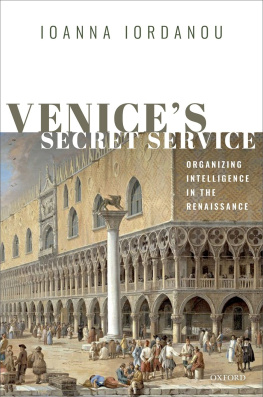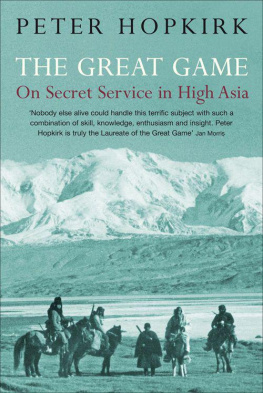
Christopher Andrew and Vasili Mitrokhin
THE MITROKHIN ARCHIVE
The KGB in Europe and the West

Contents
ABOUT THE AUTHORS
Christopher Andrew is Professor of Modern and Contemporary History and Chair of the Faculty of History at Cambridge University. Professor Andrew is also Chair of the British Intelligence Study Group, Co-Editor of Intelligence and National Security, former Visiting Professor at Harvard, Toronto and the Australian National University, and a regular presenter of BBC Radio and TV documentaries. His twelve previous books include a number of path-breaking studies on the use and abuse of secret intelligence in modern history.
Vasili Mitrokhin is a former senior officer of the Soviet Foreign Intelligence service whose career spanned the period between 1948 and 1984. From 1972 to 1984 he supervised the transfer of the First Chief Directorates archive from the Lubyanka to the new KGB headquarters at Yasenevo. He defected to the United Kingdom in 1992. Mitrokhin and Andrew are now working on their second and final volume, The Mitrokhin Archive: The KGB in the World.

PENGUIN BOOKS
THE MITROKHIN ARCHIVE
Fascinating packed with remarkable detail about thousands of intelligence breaches The most remarkable revelation of this marvellous book is the scale of the intelligence that was leaked from the West to the Soviet Union over the years
Taylor Downing, Observer
A cracking read. Its utterly absorbing and grips the reader like a good thriller Andrew Vine,
Yorkshire Post
Astounding beyond being essential reading for students of international affairs, Andrew and Mitrokhins book belongs on the shelves of anyone who wishes to plumb the depths of intrigue and evil in the modern world. If James Angleton, the CIAs legendary chief of counterintelligence, could rise from the grave to read any book, it would be [ The Mitrokhin Archive ] Timothy Naftali,
Los Angeles Book Review
Christopher Andrew is the acknowledged expert on the workings of the security services in Britain, the United States and what was the Soviet Union He simply knows more about what went on inside the Lubyanka than any other academic the historical scoop of the decade Roy Hattersley,
Independent
The tale of malevolent spymasters, intricate tradecraft and cold-eyed betrayal reads like a cold war novel. But The Mitrokhin Archive offers the added twist of being a work of non-fiction its publication revealed secrets about the KGBs long-concealed war against the West that discomfited governments and made headlines around the world
J. F. O. McAllister, Time
For those with an interest in espionage or even history in general, The Mitrokhin Archive is essential reading An unmissable glimpse at what went on behind the scenes in Europe for the last 70 years
Jonathan Turner, Irish News
A huge book merely the first culling of an archive derived from more than 30,000 top-secret files of the KGBs Foreign Intelligence Service Mitrokhin seems to be giving us a head-on view into the dark mirror of Moscow Centre He has given Andrew some fascinating material for his absorbing excursions into this secret world
John Crossland, Sunday Times
A sweeping, densely documented history of the KGB Joseph E. Persico,
The New York Times Book Review
Open The Mitrokhin Archive and you enter a world of shadows more bizarre and chilling than anything Stephen King could possibly have invented [it] offers everything you always wanted to know about Soviet intelligence operations but never dared ask Douglas Davis,
Jerusalem Post
A new history of the global effects of KGB activities, and of their obsessive paranoia at home the book as a whole shows how even the most frigid of western Cold Warriors might have underestimated the commitment and reach of the Russian secret services David Horspool,
Guardian, Non-Fiction Books of the Year
A huge packed book whose interest outlives its revelations. Here is the world of spies in their own words, spirited out of Moscow by a defector. Its by turns tragic, frightening and funny and it corrects many complacencies David Sexton,
Evening Standard, Best Non-Fiction 1999
The Mitrokhin files have offered Western intelligence and law enforcement a treasure trove of historical information about KGB operations around the world James Risen,
The New York Times
Filled with stories that seem stranger than fiction Aficionados of espionage will be rummaging through this enormously detailed book for years
Harvey Klehr, New Republic
A significant contribution to our centurys history
Alan Judd, Spectator Books of the Year
Dissects the work of Soviet intelligence over 40 years in undermining the West and gripping Eastern Europe. The more impressive for its total avoidance of the usual hype. We read calmly and coolly of the fate which we avoided
Douglas Hurd, Sunday Telegraph Books of the Year
Arguably the most important book ever written on the subject monumental Arnold Beichman,
Washington Times
Richly detailed with more stories than anything weve seen from Hollywood spy movies remarkably informative
Christian Science Monitor
The Evolution of the KGB, 191791
December 1917 ChekaFebruary 1922 Incorporated in NKVD (as GPU)July 1923 OGPUJuly 1934 Reincorporated in NKVD (as GUGB)February 1941 NKGBJuly 1941 Reincorporated in NKVD (as GUGB)April 1943 NKGBMarch 1946 MGB October 1947
November 1951 Foreign intelligence transferred to KI March 1953 Combined with MVD to form enlarged MVDMarch 1954
December 1991 KGB
The functions, unlike the nomenclature, of the Soviet security and intelligence apparatus remained relatively constant throughout the period 191791. In recognition of that continuity, KGB officers frequently described themselves, like the original members of the Cheka, as Chekisty. The term KGB is sometimes used to denote the security and intelligence apparatus of the whole Soviet era, as well as, more correctly, for the period after 1954.
Foreign Intelligence
Founded in 1920, the foreign intelligence department of the Cheka and its inter-war successors was known as the Inostrannyi Otdel (INO). From 1941 to 1947 it was succeeded by the Inostrannoye Upravleniye (INU), also known as the First Directorate. From 1947 to 1951, the main foreign intelligence functions were taken over by the Komitet Informatsii (KI). From 1952 to 1991 foreign intelligence was run by the First Chief Directorate (save for the period from March 1953 to March 1954, when it was known, confusingly, as the Second Chief Directorate).
Headquarters
Foreign intelligence officers and directives to residencies referred to KGB headquarters as the Centre. In practice the Centre usually referred to the headquarters of foreign intelligence rather than of the KGB as a whole. The organization of the KGB First Chief (Foreign Intelligence) Directorate is given in appendix D.
Abbreviations And Acronyms
| AFSA | Armed Forces Security [SIGINT] Agency (USA) |
| AKEL | Cyprus Communist Party |
| Amtorg | AmericanSoviet Trading Corporation, New York |
| ARA | American Relief Association |
| ASA | Army Security [SIGINT] Agency (USA) |
| AVH | Hungarian security and intelligence agency |
|
Next page
